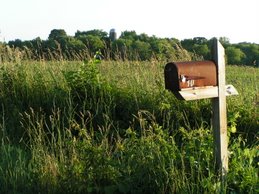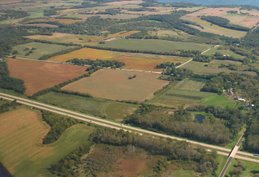Caleb Pourchot's testimony from Aug. 7th Public Hearing:
Good Evening
The elephant in the room tonight that we, the citizens of
Developing around railroad corridors makes a lot of sense, but it ignores the fact that the groundwater underneath us is already tapped beyond its capacity to sustain us. The cones of depression in the deep water aquifer that have developed as a result of over 60 million gallons a day of water pumping have fundamentally changed the hydrology of our area to the point where our lakes are now feeding into our drinking water supply. To take a deep, hard look at this reality and its consequences requires courage and an abandonment of decades of economic dogma.
A dogma that assumes that future problems can be deferred as long as short term interests are fulfilled permeates our culture. Must we always be faced with imminent crisis before we act in our children’s best interest?
Perhaps the purpose of our municipal planning departments should be to re-design what we have in such a way that we can sustain the current population in health and happiness rather than encouraging double-digit growth and expediting our future water crisis.
To this end, as we talk about growth boundaries, we should be talking about the boundary that already exists– that is, the current Urban Services Area. We should also be talking about methods for permanently preserving the land outside that boundary that are fair and equitable to the land owners. Farmers must be preserved as well as farmland. The City should actively promote programs that allow farmers and other agricultural enterprises to innovate and thrive in the urban shadow where they will be perfectly situated to feed the local economy as well as the local population.
Ralph Waldo Emerson said, “Do not go where the path may lead, go instead where there is no path and leave a trail.”
These are challenging words, indeed. My hope, however, is that there will be a few among us who are courageous enough to confront the truth that stares us plainly in the face, and that they will lead us out of our old ways of thinking and blaze a new path toward a sustainable future for our children.
Thank you



No comments:
Post a Comment